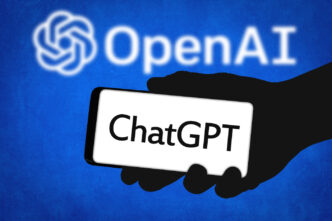Generative AI is no longer just a buzzword in enterprise procurement. According to KPMG’s Q1 2025 AI Quarterly Pulse Survey, Gen AI is driving a major transformation in how organisations approach procurement, moving it from manual processes to a strategic business function.
As companies move beyond pilot testing, procurement leaders are scaling Gen AI to enhance efficiency, reduce risks, and support smarter decision-making. Investment is growing, too. Enterprise leaders plan to invest an estimated $114 million in Gen AI over the next year — a significant rise from $89 million in the previous quarter. The increase reflects growing confidence in Gen AI’s ability to add real business value.
Procurement Workflows Embrace AI Agents
This transformation isn’t just about upgrading technology — it’s about rethinking how procurement works. Gen AI is helping redefine contract negotiations, supplier risk analysis, and data usage across supply chains. Steve Chase, Vice Chair of AI and Digital Innovation at KPMG U.S., notes that enterprise AI adoption is moving from experimental stages into scaled execution, often led by CIOs. “AI isn’t just a technology change — it’s an enterprise transformation,” Chase says. “It demands new business processes, disruptive innovation, and cultural adaptation.”
One clear sign of progress is the rise of AI agents in procurement workflows. These AI-powered tools are designed to perform specific, often repetitive tasks. According to KPMG, the number of organisations piloting AI agents increased from 37% to 65% in just one quarter. Although only 11% have fully deployed them, the trend indicates rapid momentum.
AI agents are already proving valuable in supplier recruitment and sourcing. Usage in this area has jumped from 15% to 26%, with 60% of organisations planning to implement such tools within the next year. These agents are also helping generate responses to RFPs and RFIs, identify potential suppliers, and assess third-party risks.
The impact of Gen AI extends to administrative tasks as well. Usage of AI agents for processing purchase orders, reviewing contracts, and scheduling meetings has surged from 27% to 66%. These tools are also making strides in data analysis — 78% of surveyed organisations use AI to interpret complex datasets, up from 70% previously.
Efficiency Gains and New Risk Responsibilities
While AI brings clear efficiency benefits, it also presents new challenges. Procurement teams are now central to managing third-party risk and regulatory compliance — areas deeply impacted by Gen AI. According to the report, 82% of leaders list risk management as their top concern in Gen AI deployment.
Human oversight remains essential. AI-generated insights must be carefully evaluated, especially when scoring supplier proposals or reviewing contract clauses. Inaccurate or biased outputs could lead to poor supplier decisions or compliance issues.
Data quality is another barrier. Sixty-four percent of respondents say outdated or unstructured supplier data hinders the effective use of Gen AI. Without clean, consistent information, integrating AI tools into procurement systems becomes difficult.
Trust in AI also remains a hurdle. Thirty-five percent of leaders report personal trust in AI systems as a challenge. Looking ahead, 32% believe fairness and transparency will still be concerns in 2030. Procurement, which relies heavily on consistent and ethical supplier relationships, must adopt transparent and traceable AI solutions to maintain trust.
Gen AI Supports Strategic Enablement, Not Replacement
Contrary to fears of job loss, most leaders see Gen AI as a way to enhance — not replace — human work. Seventy-six percent say AI will automate specific tasks rather than eliminate entire roles. In procurement, this means automating processes like invoice validation, supplier data entry, and contract matching, freeing up staff to focus on higher-value work.
In fact, 69% of leaders believe AI will allow high performers to shift toward more strategic roles. As AI becomes integrated into daily workflows, its adoption in procurement tools is expected to continue rising. Usage has already increased from 24% to 35% in a single quarter.
KPMG notes that procurement’s role is evolving from a back-office function to a strategic driver of business resilience. Gen AI is enabling this shift by supporting smarter sourcing, supplier monitoring, ESG evaluations, and risk modeling.
The move from pilot projects to scaled implementation reflects a broader realignment in enterprise priorities. Procurement teams are no longer just managing costs — they’re driving innovation and long-term value.













